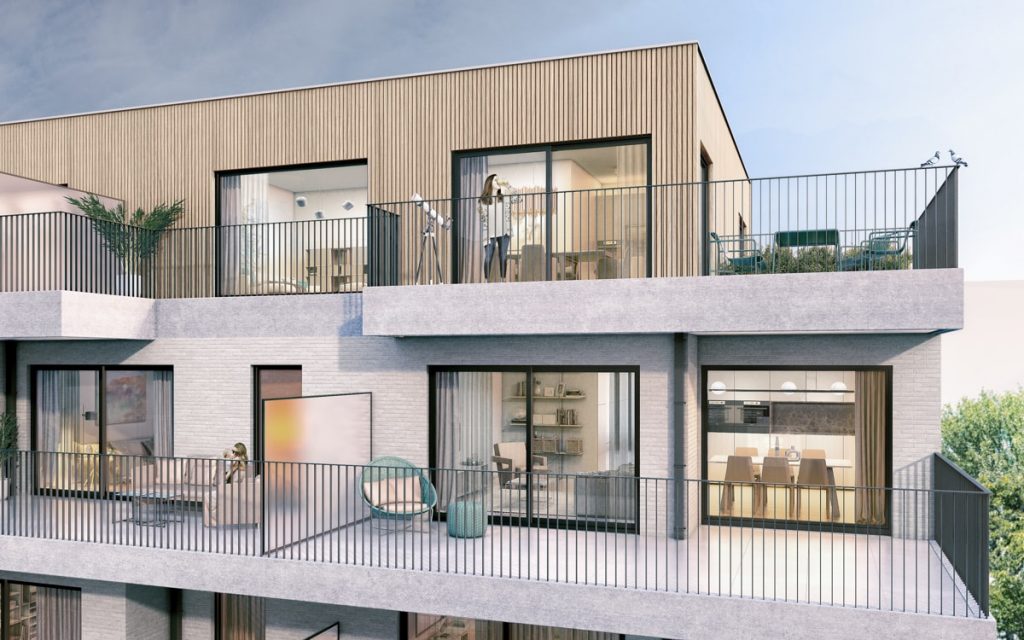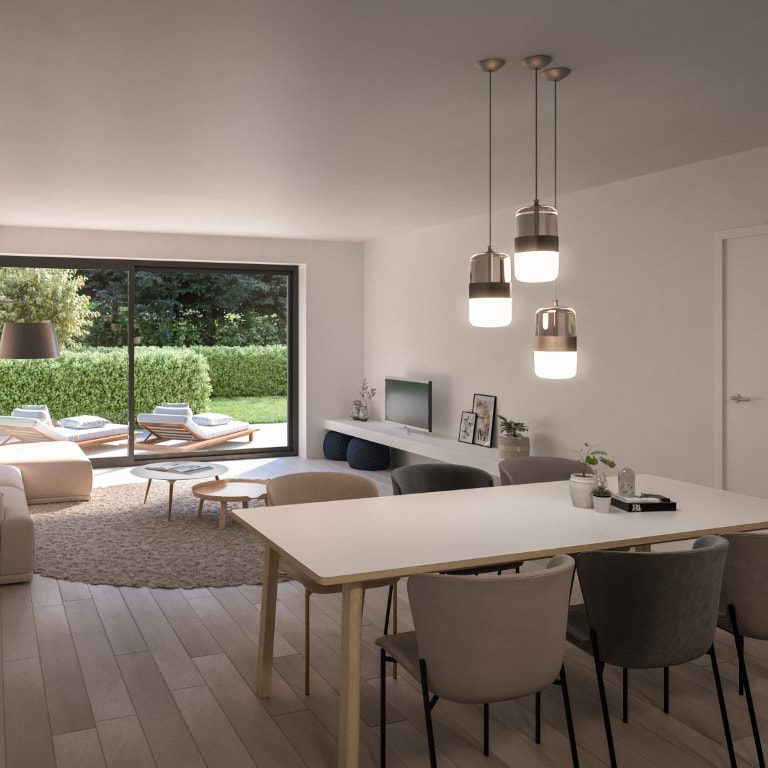
The Belgian residential property market is characterised by low volatility and stable long-term appreciation.
The current property price index is 125.68 points compared to 100 points in 2015, which is an average annual increase of more than 5%. In the second quarter of 2021, the increase in the property price index was 7.4% compared to 6.9% in the previous quarter. The average increase over the last four quarters is 5.8%.
The expected growing demand for housing in the future exceeds the supply, so that the upward trend in property prices will continue in the medium term.

The increasing ageing of the population, the reduction in family size, but also the greater diversity of family types have an important impact on the increase in housing demand. This will further increase the demand for compact housing units for one or two person households.
Although demographic forecasts point towards a slowly stagnating population growth, the number of households will continue to increase due to the increasing size of families.
The most recent prognosis of the Study Department of the Flemish Government predicts approximately 243,000 additional households by 2030 (compared to 2014), which obviously also has a direct impact on the housing demand. The Planning Bureau predicts an increase in the number of households in Flanders of 478,000 by 2050.
As in the surrounding European countries, the Belgian residential property market is also evolving from a purchase market to a rental market. This evolution has multiple causes:
In Germany, for example, 50% of households move into rented accommodation compared with 25% in Belgium.

Greenmile Sustainable Housing invests exclusively in new homes and flats, especially in recently completed or still to be completed projects.
Newly build properties guarantee low repair and/or maintenance costs and benefit from the statutory ten-year liability of contractors and architects for structural defects. By limiting the property portfolio to new-build properties, the rental yield is protected against high repair and/or maintenance costs.
The supply of newly built houses and flats on the Belgian rental market is relatively limited. The supply on the Belgian rental market consists mainly of outdated properties that often no longer meet the current comfort requirements of potential tenants. The new construction houses and flats offered by Greenmile Sustainable Housing therefore have a particularly competitive advantage on the rental market, ensuring smooth leasing and preventing rental yields from being negatively impacted by vacancy.
The business plan of Greenmile Sustainable Housing envisages that the purchased properties will be put up for sale again from the fifth year onwards, with the accrued capital gains being realised and reinvested in new construction. Thus, the property portfolio will at all times consist of newly built properties, the average age of which does not exceed five years.
Greenmile Sustainable Housing’s real estate portfolio consists exclusively of newly built houses and flats, which therefore meet the most stringent energy standards and sustainability requirements.
By permanently renewing the portfolio - through reinvestment in real estate that meets ever-stricter standards - the sustainability of the real estate will also be guaranteed in the long run.

The return that Greenmile Sustainable Housing offers to the invested capital is based on three elements:
Based on the above conservative assumptions, the business plan of Greenmile Sustainable Housing foresees an average return of 7 to 8% on its invested capital over a period of 10 years. If only the property returns on residential property of the past 2 years are taken into account, this return would be more than 10%. This makes for an interesting return on the invested capital with the underlying guarantee of a value-adjusted residential property portfolio.
Greenmile Sustainable Housing is a specialised real estate investment fund in accordance with the provisions of the Royal Decree of 9 November 2016.
A FIIS/GVBF is characterised as follows: